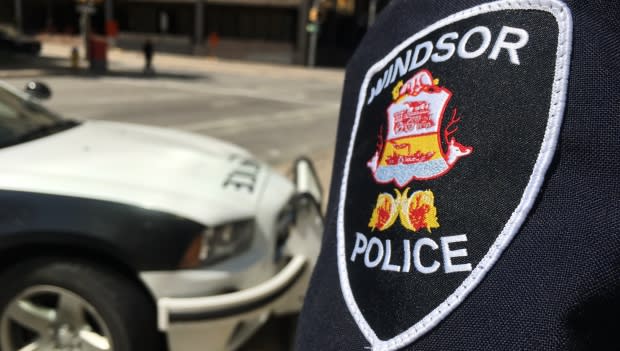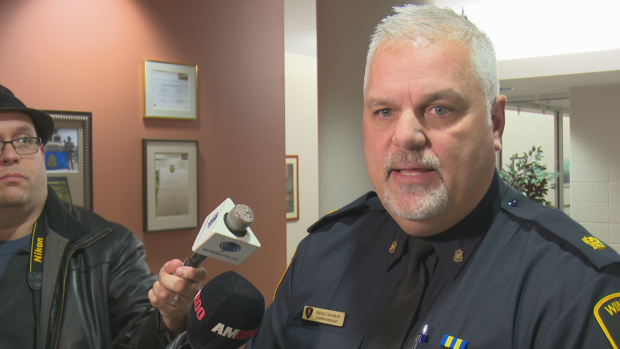Windsor police officer alleges harassment after bathroom breaks monitored
A Windsor police officer's allegations of harassment within the force include claims her superiors monitored her bathroom breaks.
According to documents obtained by CBC News from the Human Rights Tribunal of Ontario (HRTO), this is one of the 28 human rights complaints filed against the Windsor Police Service over the last 10 years.
The allegations detail several months of being tracked by GPS, a geo-fence being installed around her home, so police could monitor how often she went there during work hours, and harassment by two of her superiors.
"I felt very uncomfortable, embarrassed and belittled that I had to explain in detail why I wouldn't use a public washroom for these such reasons." - Complainant wrote in application
The officer says a male superior approached her about the number of times she went home while on-duty during a week in June 2015, when she was an acting sergeant.
At first, the complainant didn't want to disclose her bathroom schedule to her superior. She also says there were a few occasions when she went home to check on her kids, because it was a PD day.
"I understood his concern and acknowledged my reasons for going home, but I had not been neglectful in performing my duties as an acting sergeant," she wrote in her human rights complaint.
She claims her supervisor asked why she couldn't use a public bathroom. She responded by saying side-by-side open stalls pose a safety risk for officers because it forces them to leave their gun belts on the floor. She also writes in her complaint that public bathrooms are not "safe, clean or professional" for certain functions, especially when it comes to female hygiene.

"I felt very uncomfortable, embarrassed and belittled that I had to explain in detail why I wouldn't use a public washroom for these such reasons," she wrote.
The complaint was filed in April of 2016 against the Windsor Police Services Board, and specifically names Police Chief Al Frederick and police officers Jason Crowley, Andrew Baker and Pamela Mizuno, who was the inspector for the patrol division at the time and has since been prompted to deputy chief.
At the time of the alleged harassment Crowley was a staff sergeant, but has since been promoted to superintendent.
CBC News is not naming the complainant in order to protect her privacy.
Windsor police dispute allegations
In a written response by legal counsel representing the Windsor Police Service, the lawyer says the facts presented lead them to believe this was a "personality clash," and the police service disputes many of the allegations.
Windsor police claim the concerns began in 2007 when her supervisor noticed she would return to her residence early in the morning, and stay there for the remaining four or five hours of her shift.
"She was effectively only available for half of her working shift," police legal counsel writes.
It was also noted that the sergeant who claimed to have seen this reported it to an inspector, but no steps were ever taken.
Police highlight different issues
The Windsor police response to these allegations of harassment also includes what it calls a "significant incident" not mentioned in the application. It involved an instance where the complainant allegedly showed signs of insubordination over the police radio by not following Sgt. Baker's order about a specific call.
In a meeting with Sgt. Baker and Staff Sgt. Crowley, they said she had a "highly belligerent attitude" and behaved in a hostile manner. No disciplinary action was taken based on this incident.
The police service admits in its documents to the HRTO that concerns about the complainant led Staff Sgt. Crowley to have a geo-fence placed around her property, which leaves a digital record of any police vehicle entering and leaving the perimeter.
"Never before have I been questioned on using the washroom in my 24 years as a police officer." - Complainant wrote in application
The complainant says her supervisor was "of the opinion that going home was not reasonable."
Officers going home to use the bathroom?
The complainant says the issue came up again in September 2015.
She says Staff Sgt. Crowley spoke with her again about the time she was spending at home, which was in the same district in which she was patrolling. She says Crowley told her that he doesn't have a problem with officers going home to use the bathroom, he wanted to keep the frequency down.
"How can we control the frequency to what is only human nature," she said in her complaint. "Never before have I been questioned on using the washroom in my 24 years as a police officer."
At the time, the Windsor Police Service had no specific policy on the use of washrooms.
After her supervisor produced yet another document detailing her whereabouts, she became suspicious that her every move was being watched.
Allegations of violating privacy
It wasn't until November of 2015 that she says she confirmed with a fellow police officer, who had knowledge of GPS tracking, that a type of geo-fence had been placed around her home.
"This violated my privacy and singled me out as a female member of the service," she wrote.
After several more interactions with her supervisor in person, and through email, the complainant said her stress amplified and affected her overall physical and mental health. The complainant felt she was being watched at work and felt violated for continuing to have to explain her bodily functions to a male supervisor.
"I felt like a victim with no voice," she said.

During a conversation with Pamela Mizuno, an inspector at the time and now a deputy chief, the complainant says she was given records that specifically outlined how frequently she stopped at home while working.
She says she was tracked during 30 of her 55 shifts over a period of several months.
The total time spent at her residence was 5 hours and 34 minutes, which she claims works out to an average of 10 minutes per stop during a 10-hour shift.
However, the response by Windsor police views the numbers differently. They claim she spent more than eight hours at her personal residence during 12 shifts. And during her shifts between June 2 to June 5, they say she spent 274 minutes at her house.
When the complainant filed her application to the HRTO in 2016, she was unaware the geo-fence was still active around her home.
The complainant was seeking $106,000 in compensation. She also wanted the police service to comply with the human rights code, introduce "strict" regulations around GPS monitoring and ensure that she would never be under the supervision of the two people she alleges harassed her.
The dispute was settled between the parties involved and that settlement is confidential.
The complainant continues to work as a Windsor police officer.
Windsor mayor Drew Dilkens, who is also chair of the Windsor Police Services Board, declined to comment.


